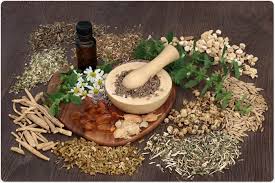Are Natural Weight Loss Supplements Safer Than Synthetic Ones?

Introduction
In a world where 42% of adults actively try to lose weight annually (CDC), the $33 billion weight loss supplement industry thrives on bold promises. But behind the glossy ads lies a critical question: Are "natural" supplements truly safer than synthetic options? As a nutritional scientist, I’ve seen patients struggle with this dilemma, often assuming "plant-based" equals "harmless." The truth is murkier. While some natural supplements offer gentle support, others carry hidden risks. Synthetic options, though rigorously tested, may cause harsh side effects. This article cuts through the hype, comparing safety, efficacy, and science-backed strategies to help you make informed choices—without sacrificing your health.
The Science Behind Supplements: Natural vs. Synthetic
Weight loss supplements work through four main mechanisms:
- Appetite suppression (e.g., glucomannan, a natural fiber).
- Metabolism boost (e.g., synthetic caffeine anhydrous).
- Fat absorption blocking (e.g., orlistat, a pharmaceutical drug).
- Energy expenditure enhancement (e.g., green tea extract).
Natural Supplements are derived from plants, minerals, or animals. Examples include green tea extract, Garcinia cambogia, and conjugated linoleic acid (CLA). They often contain a mix of active compounds, which may work synergistically (the "entourage effect").
Synthetic Supplements are lab-created molecules designed to mimic natural processes. Examples include orlistat (Alli) and phentermine. These are often more concentrated and standardized but may lack complementary compounds found in whole foods.
5 Evidence-Based Benefits of Weight Loss Supplements
1. Appetite Suppression
- Glucomannan: A natural fiber from konjac root expands in the stomach, promoting fullness. A 2005 International Journal of Obesity study found users lost 5.5 lbs over 8 weeks vs. placebo.
- 5-HTP: Derived from Griffonia seeds, this serotonin precursor reduced emotional eating in a 2013 Journal of Dietary Supplements trial.
2. Metabolism Boost
- Green Tea Extract: Rich in EGCG, it increases fat oxidation by 17% (American Journal of Clinical Nutrition).
- Caffeine Anhydrous: Synthetic caffeine boosts metabolic rate by 11%, per a 2020 NIH review.
3. Fat Blocking
- Chitosan (natural shellfish fiber) binds to dietary fat, but results are modest (~3 lbs over 12 weeks).
- Orlistat (synthetic) blocks 30% of fat absorption but may cause "oil leakage."
4. Blood Sugar Regulation
- Berberine: A plant alkaloid matched metformin’s glucose-lowering effects in a 2008 Metabolism study.
5. Gut Health Support
- Probiotics: Specific strains like Lactobacillus gasseri reduced belly fat by 4.6% in a 2010 European Journal of Clinical Nutrition trial.
Natural vs. Synthetic: Safety Showdown
|
Factor |
Natural Supplements |
Synthetic Supplements |
|
Regulation |
Minimal FDA oversight |
FDA-approved (if prescription) |
|
Common Risks |
Contamination, herb-drug interactions |
Heart palpitations, dependency |
|
Bioavailability |
Variable (e.g., curcumin needs piperine) |
Consistent dosing |
|
Long-Term Safety |
Limited research |
Better studied (e.g., orlistat) |
Key Concerns:
- Natural ≠ Safe: Comfrey and ephedra (ma-huang) caused liver damage and heart attacks before being banned.
- Synthetic Precision: Drugs like liraglutide (Saxenda) target specific pathways but may overstimulate systems.
A 2019 JAMA study found 23% of natural supplements contained undeclared pharmaceuticals. Always verify third-party testing (look for NSF or USP seals).
RDA, Sources & Recipes
While supplements lack official RDAs, research-backed daily doses include:
- Green Tea Extract: 250–500 mg EGCG
- Caffeine: ≤400 mg (NIH)
Natural Sources:
- Chili peppers (capsaicin)
- Walnuts (omega-3s for satiety)
- Greek yogurt (calcium linked to fat excretion)
Recipe: Metabolism-Boosting Smoothie
- 1 cup green tea (cooled)
- ½ cup frozen mango
- 1 tsp ginger
- 1 tbsp chia seeds
Blend for a caffeine-free EGCG and fiber dose.
Risks & Interactions
- Synthroid + Calcium: Supplements can reduce thyroid medication absorption.
- Antidepressants + 5-HTP: Risk of serotonin syndrome.
- Overdose Signs: Natural (nausea, liver enzymes ↑); Synthetic (arrhythmia, anxiety).
FAQs
Q: Can I take supplements while breastfeeding?
A: Avoid without medical approval—even "natural" stimulants transfer to milk.
Q: Best time to take fat blockers?
A: With meals containing fats (e.g., orlistat with dinner).
Q: Do detox teas work?
A: Most cause water loss, not fat loss. Learn what’s safe here.
The Bottom Line
Natural supplements aren’t universally safer—quality and context matter. Green tea extract or berberine may benefit some, while others need prescription tools. Prioritize supplements with human trials (check NIH’s Office of Dietary Supplements), and always consult your doctor, especially if managing conditions like diabetes. As research evolves, one truth remains: Sustainable weight loss requires lifestyle change, not just pills.
Author Bio
Mike Hamilton, PhD, is a nutritional scientist specializing in pediatric and family nutrition. A Stanford University graduate, he’s published 50+ peer-reviewed studies on dietary interventions and advocates for evidence-based supplement use.
